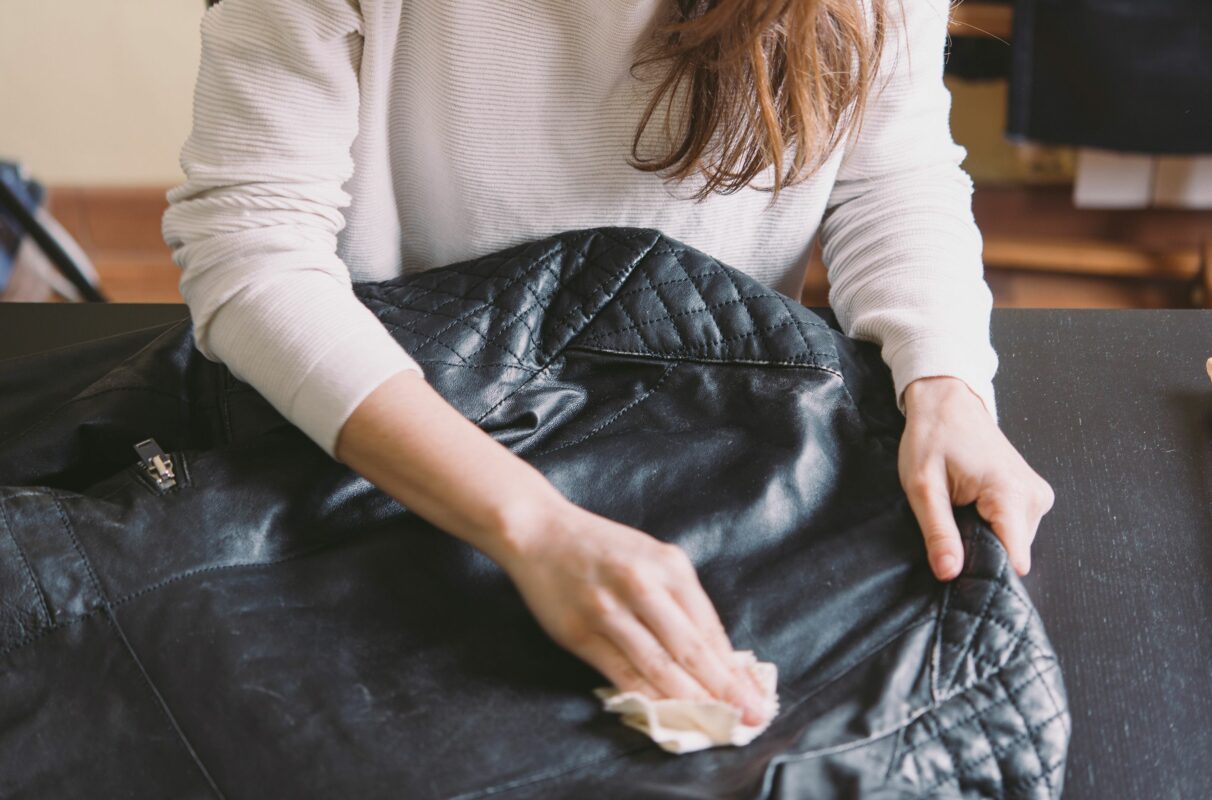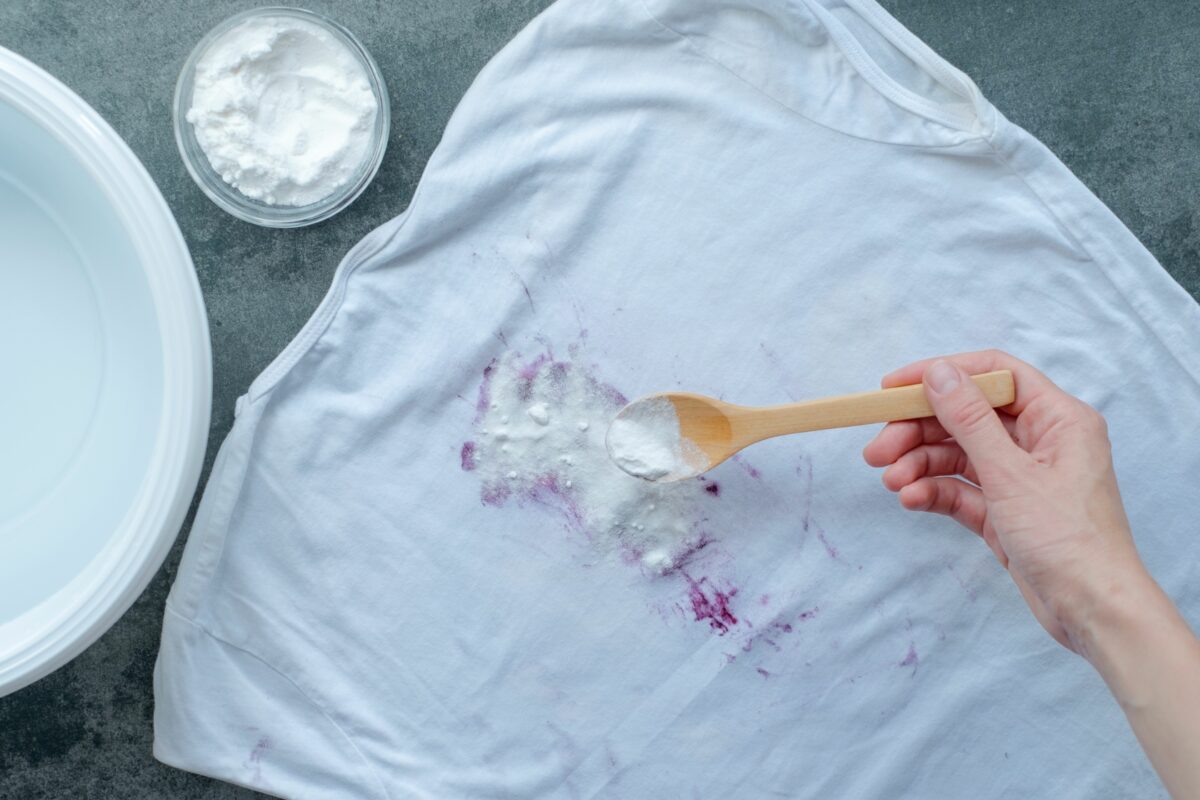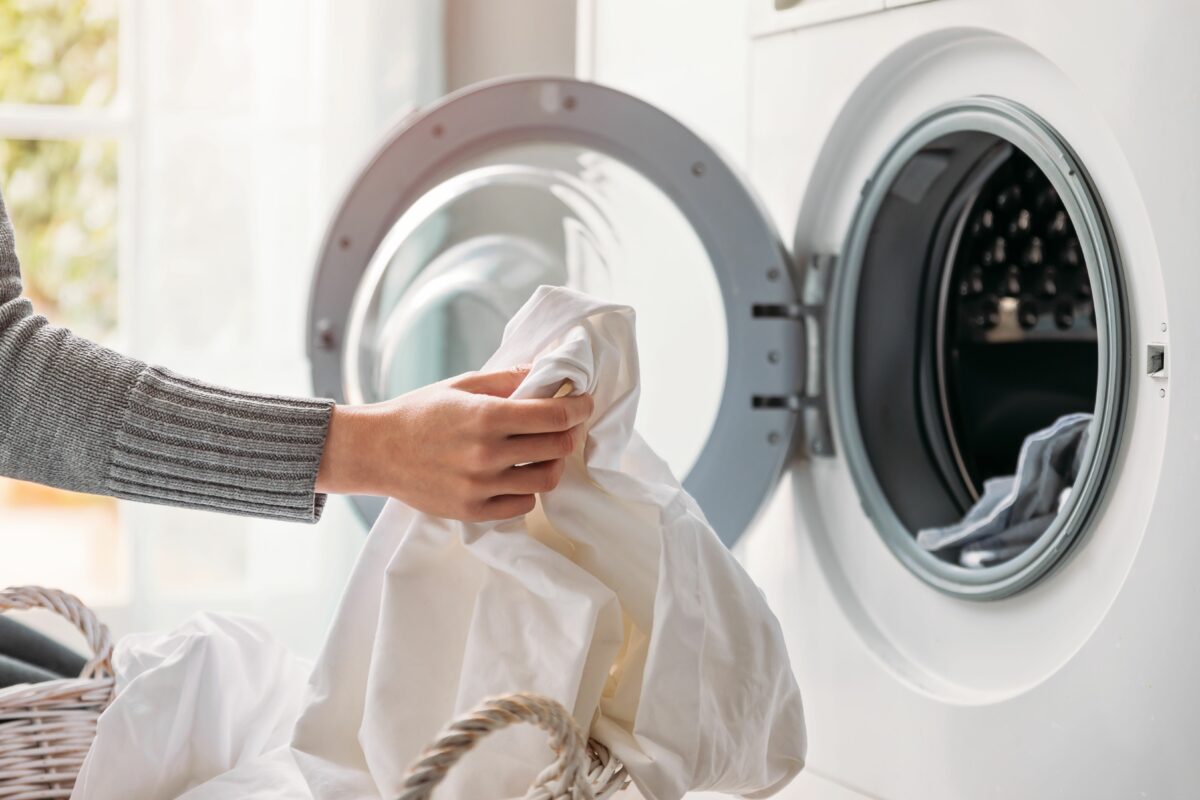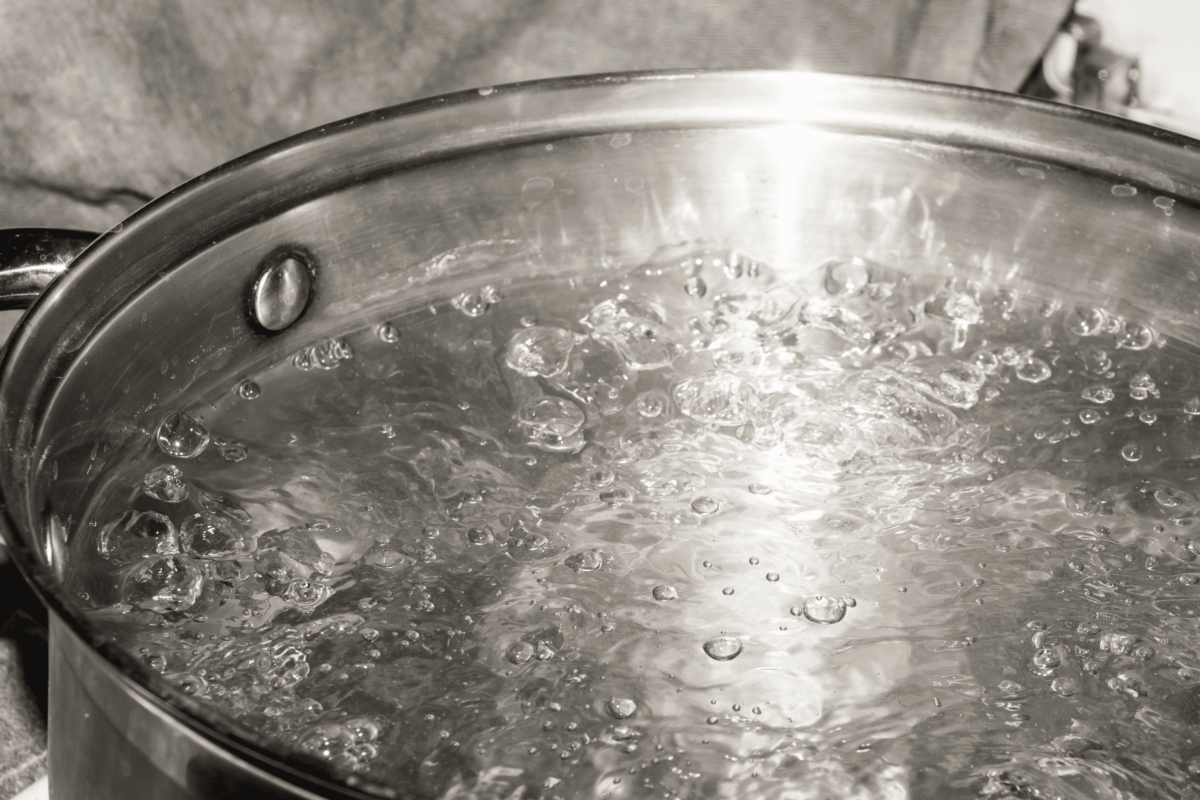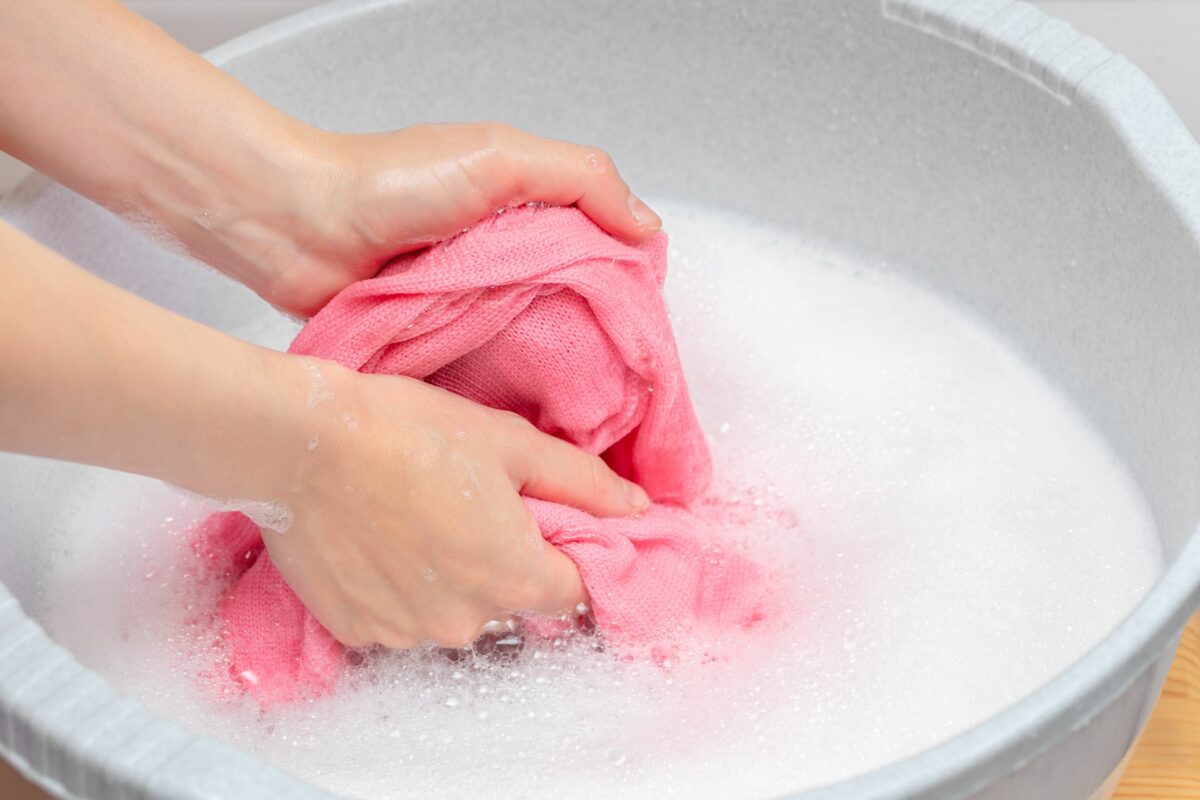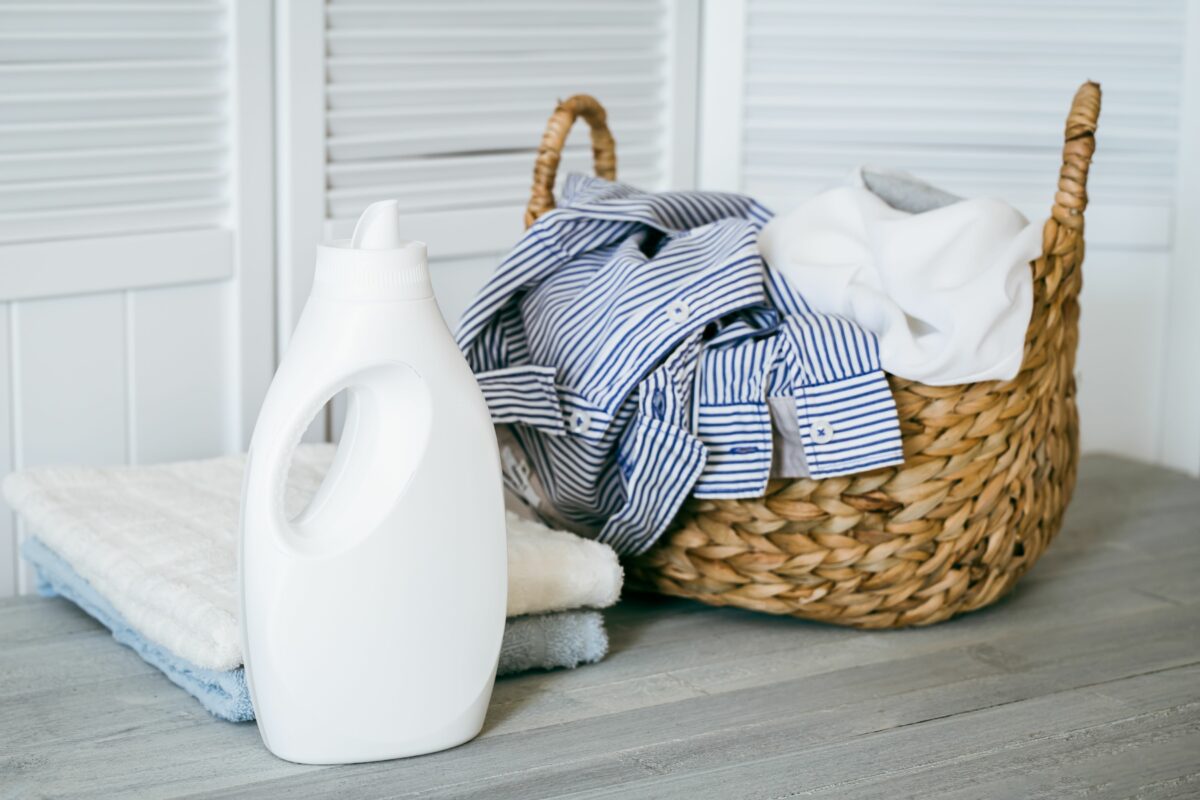With so much emphasis on cleanliness in the wake of a global pandemic, germs and dirt are top of mind. That’s led some people to adopt new practices of changing their clothes when they come home after a day out—specifically, changing from their daytime or “outside” clothes to something else before they settle on the sofa or get into bed.
We asked experts to explain some of the science behind the concept and advise whether changing clothes when you arrive home is necessary for the average person.
- Sammy Wang is a fabric care senior scientist and communications manager at Procter & Gamble.
- Mary Gagliardi, also known as “Dr. Laundry,” is an in-house scientist and cleaning expert for Clorox.
“Attitudes toward laundry can vary greatly within a city or region, or households,” says Sammy Wang, a P&G fabric care senior scientist. “It is logical that people in NYC who are exposed to more people, public transportation, and general activity may want to keep those ‘outside’ things outside.”
“These concerns can be legitimate, depending on the environment, what you’re wearing, and preference,” says Wang. “Where you’re from and where you live play a role in your thoughts on the subject. If you’re commuting in your personal car to and from locations, you might not feel like you need to change your clothes before sitting down inside.”
Concerns About Contamination
The pandemic brought germs to the forefront of our minds, but even without a major virus, there are still everyday contaminants to worry about. Whether you’re a nurse, a factory worker, or a farmer, chances are you come into contact with visible soils at your workplace.
“If your workplace or a facility you’re in has laundry protocols—like those in laboratories, hospitals, or other health care facilities—then those protocols should always be followed,” Wang says. “For most everyday scenarios, regular laundry protocols like washing with a high-quality detergent are enough to clean fabrics thoroughly.”
If you’re worried about taking the right precautions at your job, Wang suggests checking the American Cleaning Institute’s Levels of Laundry guidelines, which outline health concerns in your family that might necessitate more frequent washing of laundry.
Protection Against Allergens
If you or someone in your family suffers from allergies, washing your outside clothes can help you avoid sniffling and sneezing at home.
“Outdoor allergens like pollen or other environmental pollutants can transfer from clothing worn outside onto indoor fabrics and surfaces like beds,” Wang says. “Fabrics tend to trap particulates, like pollen, which become airborne later and trigger allergies. If you suffer from specific allergies or seasonal allergies, wash your clothes regularly to avoid bringing allergens into the home and into areas where you spend a lot of time—like your bed.”
Recommended Laundry Frequency
Washing your clothes is extremely important, whether or not you work at a dirty job or come into contact with contaminants regularly.
“From a laundry science standpoint, we recommend washing clothes after every wear,” says Wang. “That’s because of exposure to outside soils but also because of exposure to the body soils that we secrete each day,”
Even if your clothes smell fine and you didn’t break a sweat, chances are there’s still something to wash off. “We’ve found that the average adult secretes about 1 liter of sweat, 40 grams of sebum or body grease, 10 grams of skin cells, and 10 grams of salt each day,” Wang says. “So even if you’re not going outside, your clothes are exposed to a lot of body soils, which should be cleaned off to prevent odor and dinginess.”
The Effects of Outside Clothes on Bedding
Cleaning your clothes and hitting the hay in fresh pajamas each night will help keep your bedding fresh. “Dirt and other trace materials can transfer easily from fabric to fabric, so consider if you would want your bed to have been in all the same places your clothes had been in a day,” Wang adds.
You’ll still need to regularly wash your bedsheets, even if they aren’t coming into contact with outside clothes. “The general recommendation is to wash your sheets every one to two weeks,” Wang says. “If you sleep with pets in the bed, sweat heavily, sleep naked, eat in bed, or do other activities in bed that may dirty sheets, then you should consider washing your sheets more frequently.”
The Impact of Personal Cleaning Practices
Cleaning practices are super personal, so thoughts on outside clothes vary from person to person. “There can be a lot of factors at play for how people approach wearing outside clothes around inside—from psychological factors to cultural factors to how someone was raised,” Wang says.
Where you live and what you encounter regularly also affect your hygiene practices. “Even weather can play a role, especially in hot, sweaty climates,” says Mary Gagliardi, an in-house scientist and cleaning expert for Clorox. “Come home hot and sweaty? Did a random dog jump on you at the dog park and leave paw prints on your pants? Do your clothes get filthy at your construction or landscaping job? Do small hands grab at your clothes after wiping their runny noses at your teaching job? If so, change into something clean and more comfortable.”
Removing your shoes before entering the home, regardless of your occupation, is a great way to maintain a cleaner and healthier home.
Wang airs on the side of caution, suggesting that you change your clothes when you come home for the best chance at avoiding everything from pollutants and dirt to odors.
“Fabrics and clothes tend to pick up dirt and odor because of their high surface area and general absorbency,” she says. “Clothes are essentially the barrier between our bodies and the external world, so they are exposed to a lot while we’re out and about.”
So Is Changing from Outside Clothes a Necessity?
Changing from outside clothes isn’t necessary for everyone. However, Wang says that while the soils we encounter outside the home might not be immediately hazardous, it’s still good practice to give your clothes a nice wash right after exposure.
“This prevents prolonged contact of outside soils with our skin and with the other soft surfaces in our homes that we come in contact with like furniture or bedding,” she says. For Wang, that means changing when she gets home before touching other surfaces. “When I get home, I change out of the clothes that I’ve worn outside the house, put them in the hamper, and then change into clean ‘indoor’ clothes before sitting or lying on furniture or beds,” she says.
Gagliardi says changing your clothes when you get home is probably most important for specific workers, including those in construction who might encounter lead paint or fine particles when sanding, for example. In most cases, these workers wear some kind of PPE (personal protective equipment). If not, laundry becomes more important. Still, Gagliardi says if you aren’t working a dirty job, riding public transport, or getting overly sweaty in your clothes, you shouldn’t stress.
“For most people, it’s probably not that critical to always change out of street clothes, and for them, it’s more an issue of physical comfort,” she says.
Tips for Practicing Good Personal Hygiene
The Centers for Disease Control and Prevention (CDC) says textiles and fabrics are typically not the main sources of disease transmission. So, while you might worry about catching a cold from your outside clothes, washing your hands frequently is more important to avoid catching a virus.
If you live in a big city where public transportation is a necessity, you might want to change your clothes more often. That’s fine, but the real concern with public transportation is personal hygiene, says Gagliardi.
“With public transportation, avoid touching your face while in transit, and practice good hand hygiene by washing your hands afterward, important steps you can take to reduce your risk of illness,” says Gagliardi.
When you do your laundry after wearing it on public transportation or if you’re laundering clothes worn in high-exposure fields like health care, education, agriculture, and construction, Gagliardi suggests washing your hands after handling the laundry to be safe.



